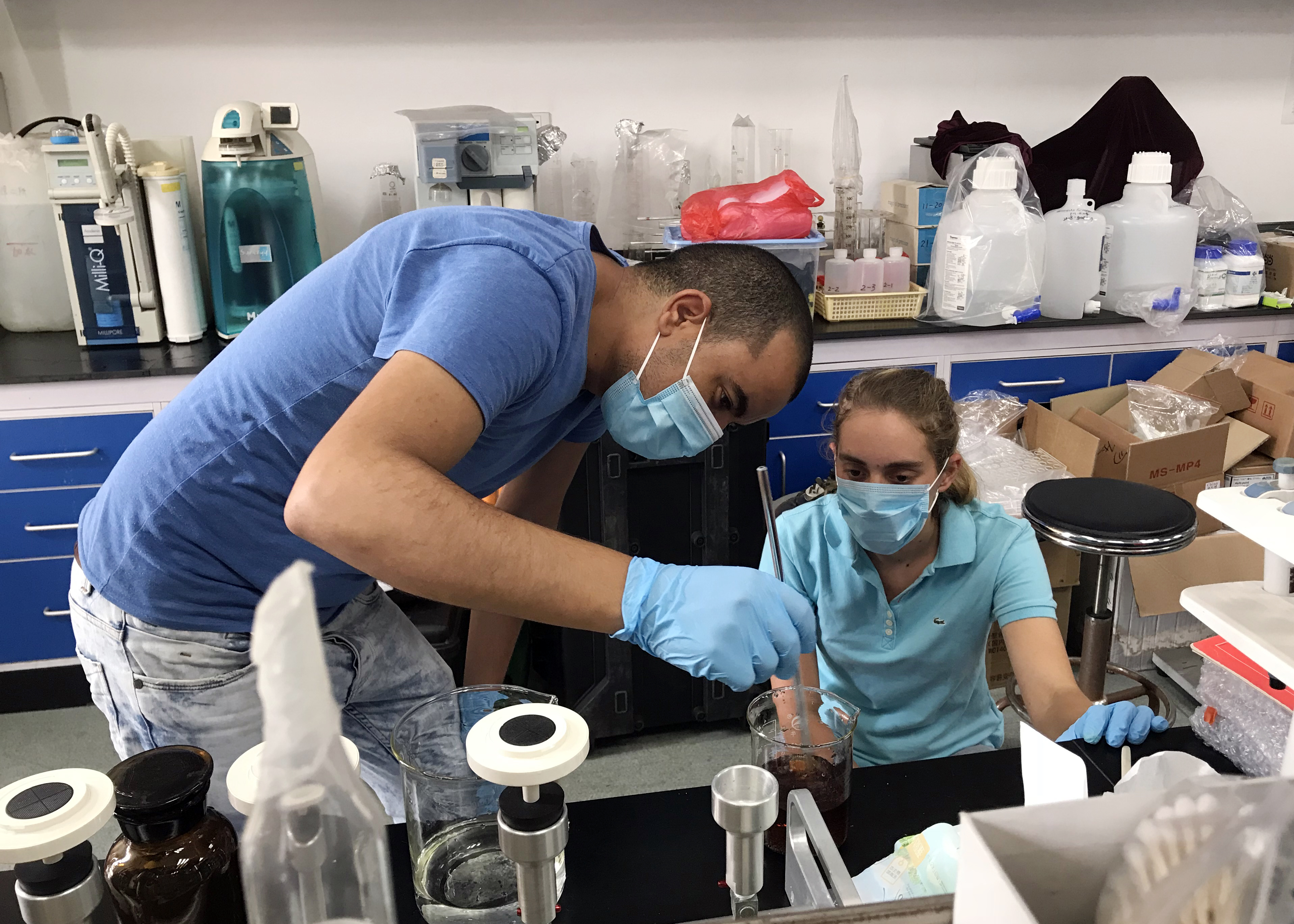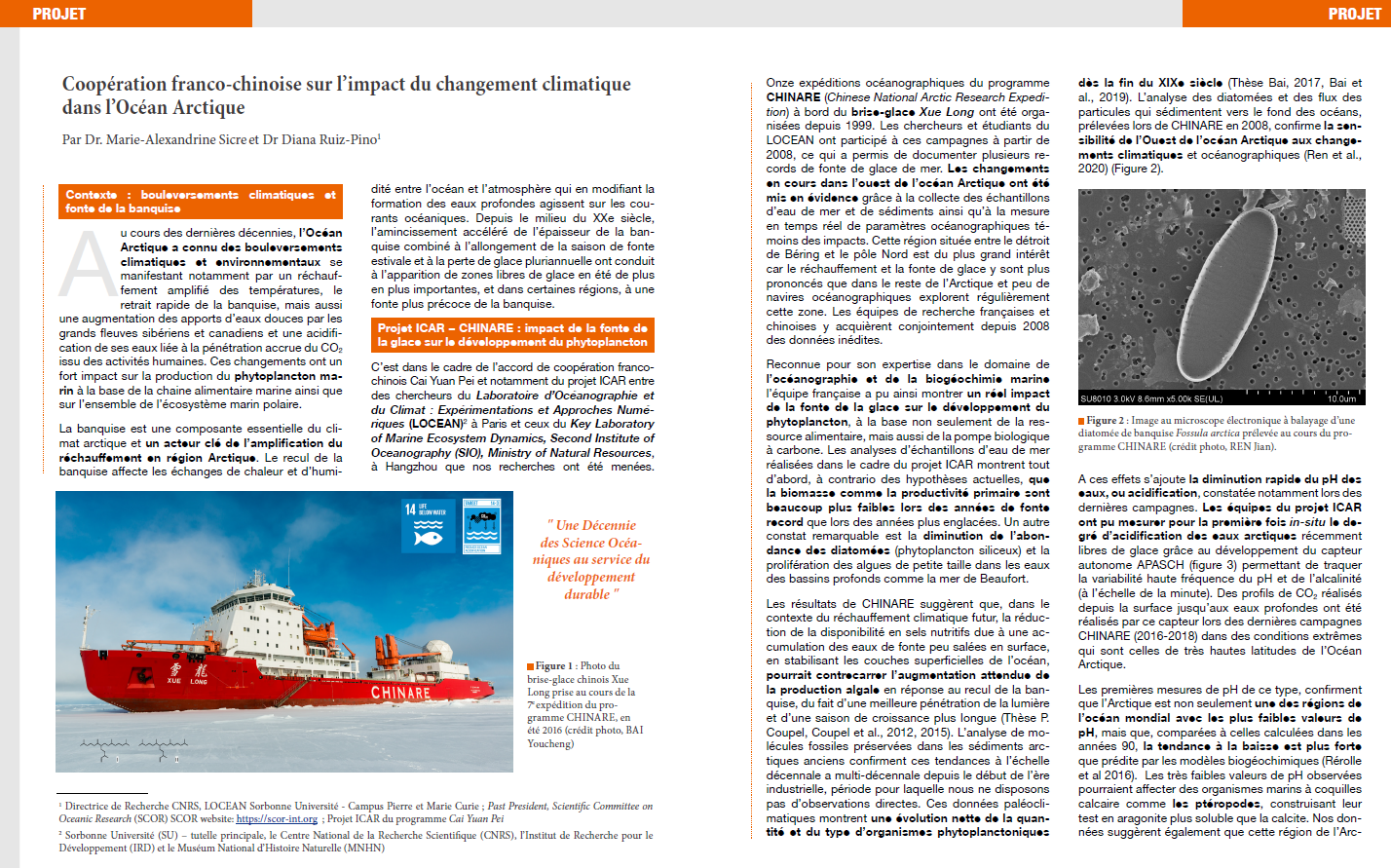News


Recently, China Representative Office of Centre National de la Recherche Scientifique (CNRS) reported in the latest issue of Le CNRS en Chine the cooperation results between the Key Laboratory of Marine Ecosystem Dynamics, Ministry of Natural Resources (MED) with the Laboratory of Ocean and Climate of the French Sorbonne University (formerly the Laboratory of Ocean and Climate of University of Paris VI) in the fields of ocean and polar.
In the 1980s, SIO and the University of Paris VI in France took the lead in the “Sino-French Yangtze Estuary Biogeochemical Cooperative Research”, which promoted more than 20 person-times of mutual visits between China and France, cultivated a group of talents and strongly improved SIO’s research on marine ecology and marine chemistry. Over 20 years later, SIO and LOCEAN initiated the Sino-French Arctic Ecological and Biogeochemical Cooperative Research. Since the third Arctic scientific expedition voyage of China from 2008, LOCEAN has successively dispatched scientific researchers and students to take part in China’s Arctic scientific expedition on the “Xuelong” scientific research vessel, so as to go deep into the Arctic hinterland and study the change of environment and ecological system of the Arctic Ocean together with scientific researchers from SIO. Meanwhile, LOCEAN has sent researchers to SIO for many times to cooperate and exchange scientific research results in the Arctic.
Funded by “Cai Yuanpei” Cooperation and Exchange Project of China Scholarship Council and other related projects, and by taking “rapid Arctic changes and their biogeochemical responses” as the main line, China and France have conducted in-depth cooperative research on how the retreat of sea ice affects the marine environment of the Arctic Ocean and its impact on Arctic Ocean phytoplankton, sea ice bio-community structure, the distribution of biogenic elements, the cycle process, etc. Also, both countries have conducted in-depth cooperation on the development and application of new technologies such as Arctic Ocean carbonate system online monitor, high-latitude online buoy platform, polar marine biomarkers, automatic phytoplankton identification system, etc.
After long-term and in-depth cooperation and exchange, China and France have made significant progress in the field of ocean and polar research. Both countries have jointly published many research results in internationally renowned academic journals such as Biogeosciences, Progress in Oceanography, etc. These researches provide humans with data support and new perspectives for understanding the rapidly changing Arctic Ocean and its marine ecosystem, improve the level of SIO’s in-depth Arctic Ocean biogeochemical research and help improve China’s capability to participate in global governance of polar and ocean.



